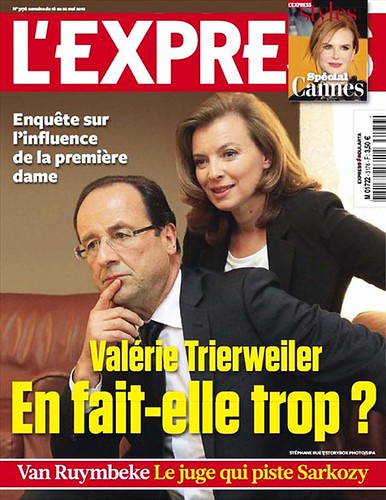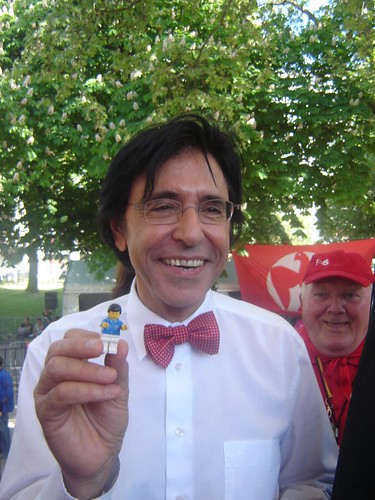Journalist Valerie Trierweiler, Hollande’s partner (Americans – ‘partner’ is French for ‘unmarried fornicator’) made the faux pas of endorsing a rebel challenger to Socialist party standardbearer Segolene Royal in this Sunday’s elections for the French Parliament. This might seem fairly uninteresting, until you add the fact that Royale, herself the 2007 presidential candidate for the Socialists, is the former partner of Hollande and they have four children together.
The offending endorsement of challenger from the French first lady was made in a tweet posted by Trierweiler yesterday. The reaction from Hollande’s fellow Socialists has been furious. They have pointed out that not only has the tweet exacerbated the inter-party tensions and in a way that could cost the Socialists seats on Sunday, it also seems grotesque on a personal level. For the first lady to go out of her way to publicly insult and humiliate the mother of her partner’s four children seems exceptionally cruel, French politician Daniel Cohn Bennett said. But it seems entirely consistent with her previous behaviour toward Royal (more on that later).











